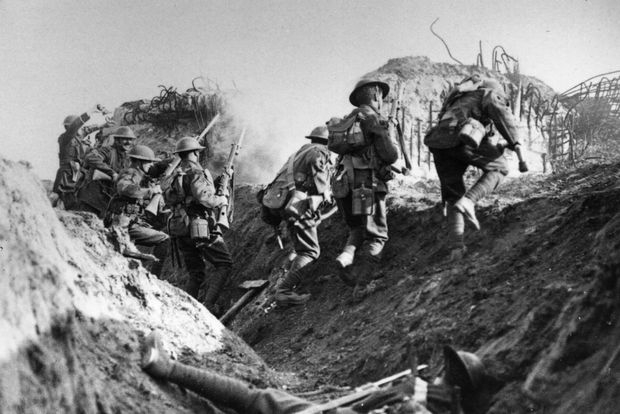There’s been a lot written this week about whether or not to fight the Islamic State in Iraq. This time the consensus among Spectator writers is that Britain should. There’s a clear moral case, but is it in our interests to go to war? The first time this question came up was in 1839 when China started confiscating opium from British traders. It may have been a good move to protect British trade, but the magazine was less convinced about the morality of it.
The perfect right of the Chinese authorities…to prohibit opium, will not bear disputing about; while the wisdom of their conduct in this matter—even supposing the object were to derive a revenue from home-grown opium—is at least as clear as that of the British Legislature, which forbids the growth of tobacco in Ireland in order to secure the tax on tobacco imported…If we have no trade with the Chinese but that which is maintained by arms, we shall have none at all. Neither in submission nor in violence is there the least prospect of establishing permanent and satisfactory commercial relations with this singular country.
The article suggests establishing a commercial haven on one of the islands off the coast of China – in fact, Britain took over Hong Kong just over a year later. There was a stronger moral case for sending soldiers to China in 1900 when the Boxer rebels started killing foreigners.
The secret society which calls itself the “Boxers,” and which was first organised in Shantung for the protection of China against the foreigner, has gradually worked its way to within a few miles of Pekin, murdering on its route all scattered foreigners, and especially all congregations of native Christians, not, we imagine, on account of their creed, but of their supposed friendship for white men.
It soon became clear that Britain had to do something.
The strength of the “Boxers,” the character of their weapons, and their relation to the troops are still uncertain, but much is becoming clear. It is clear, for example, that the “Boxers” mean to effect a massacre of Europeans if they can, and that they are effecting a massacre of Chinese converts, killing them all impartially, whether Catholic or Protestant, English, French, or American. The English converts have suffered heavily; the American converts are in such straits that the Government of Washington, though obviously anxious to keep out of the turmoil, has ordered marines from Manila to protect them; and the French converts are so menaced that their Bishop has armed them all, brought them within the mission compound in Pekin, and ordered them to defend themselves and their missionaries with the rifle. No distinction is made in favour of any nationality, nor can any say that their enemies are spared while they themselves are given up to the spoiler. To be white is in “Boxer” eyes to be worthy of disembowelling….Steps, therefore, have been taken of the most decided kind. A combined force of two thousand marines—supposed by Anglo- Chinese, in their contempt for native valour, to be quite considerable—has been ordered to fight its way to Pekin, and on its arrival the Legations, already protected by marines and Maxims, will, it is stated, make in combination some demand in the nature of an ultimatum.
Church leaders were uncomfortable about Britain’s involvement in the first Gulf War. Rowan Williams and Philip Crowe, who was principal of an Anglican theological college, wrote to Anglican bishops, arguing that there would be no international force in the Gulf if Kuwait produced carrots and Saudi Arabia was one vast onion bed. The Spectator took a different view.
This is certainly so. Nor would Saddam Hussein have invaded Kuwait for its vegetables. But if onions and carrots were all there was in the world to eat, and the Gulf was the major producer of these, tanks, ships and planes would still be massing in Saudi Arabia.
The supply of oil is as necessary to the West and the Third World as the supply of food: that is the true analogy. Control of the major oilfields in some recreated fantasy kingdom of Nebuchadnezzar would enable Saddam Hussein, a man cruel enough to use chemical warfare on his own civilian Kurds, to blackmail the world. A Vandal emperor would have taken power. Concern about this is every bit as morally legitimate as concern for the rescue of Kuwait, more so, because it affects more countries. The leaders of the West have been mistaken in emphasising one at the expense of the other, laying themselves open to the charge of humbug. Messrs Crowe and Williams have said that it is hypocrisy to act now in defence of Kuwait, when we did not intervene in the West Bank or Tibet. But that is another argument for intervention, not for a continuing failure to act.
It is common defensive self- interest, not a newly discovered ideal of brotherhood, which has produced such remarkable unanimity in the United Nations, and for which ordinary men and women are, and have been, prepared to kill and die.
The magazine took a similar line on the Second Gulf War.
The third condition is that the goal of the war must be clearly specified. This goal should be severely circumscribed. It is to remove Saddam and to destroy his regime, not to bring about democracy in Iraq, a task greater than that of Sisyphus. The only thing that should be required of the new Iraqi regime is that it should not endanger the peace of the world.
The message sent by America, then, should be clear and unambiguous: dictators are to be removed not because they are dictators, but because they threaten American interests and international peace. Naive domestic little dictators can be safely left to their own devices, and to the wrath of their own people.
When Hutus started killing Tutsis in Rwanda twenty years ago, no other country did anything. George Alagiah was reporting from just over the border in the Democratic Republic of Congo.
To report from a place like Goma is to know how impotent you are. I’d tell myself that someone important was watching our report and would be galvanised into action. But the fact is it was already too late. Every day I was there was a new assault on the emotions. It was like having a front seat at a parade of every evil that has ever befallen man — conflict and pestilence, hunger and terror. It is all there — in Old Testament proportions.
Iraq hasn’t had a genocide, but one Yazidi man told the BBC this week that every rock had had the blood of a child spilled on it. The death toll is not clear, but IS’s aim is: obliterate the Yazidis. Alex Massie said this week that it is in Britain’s interest to fight IS – perhaps that’s the kind of argument that might swing it.






Comments